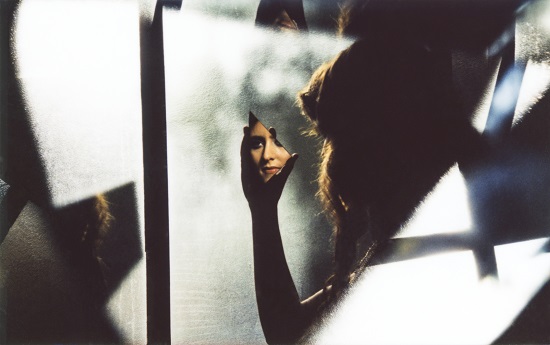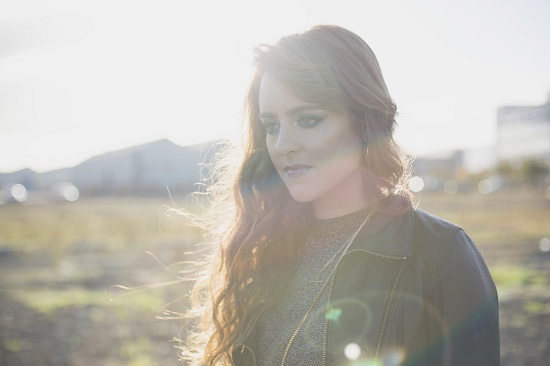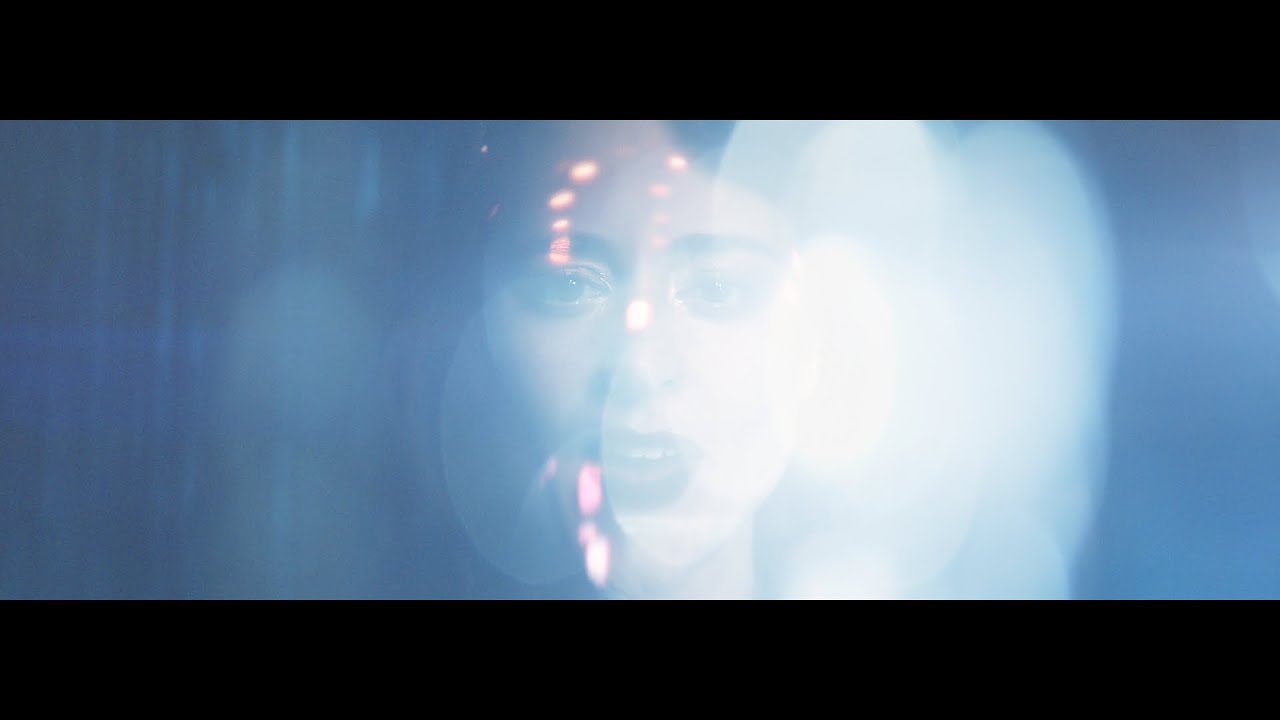Portraits by Adam Patterson
“When I awake / Yesterday is far away / When I awake / I don’t recall your name, my only friend.”
‘Conversations” by Hannah Peel, 2016
Dementia is a cruel and callous illness. It robs people of their memory, personality and, ultimately, their dignity. There are 850,000 people with dementia in the UK and this number is estimated to rise to a truly frightening 2 million by 2050.
I live with the heartbreak caused by dementia. My mother was once a vibrant, ferociously independent woman who played cricket, line-danced several times a week and would routinely spook me by playing her beloved Nana Mouskouri records. These days she does not know who I am, cannot walk and is reliant on my utterly devoted father to feed her every meal. There is no respite and no chance of recovery. Dementia is relentlessly grim.
Multi-instrumentalist Hannah Peel also understands the insidious, torturous path of watching a loved one succumb to the disease. Her grandmother had dementia and the many hours spent together would become to the inspiration for Peel’s second solo album, Awake But Always Dreaming. The concept for the record – five years in the making since 2011’s The Broken Wave – became clear after one particular visit to her grandmother in Ireland, after which Hannah wrote the track ‘Conversations’. It’s a truly beautiful song – and lyrically so close-to-the-bone that I personally struggle to listen to it without dissolving into tears. Hannah admits she doesn’t know when she will be able to sing ‘Conversations’ in public, due to the raw weight of emotion.
And Awake But Always Dreaming is an incredible record. Lead single ‘All That Matters’ is shimmering electro pop – and a million miles away from the music box and acoustic feel of The Broken Wave – and paves the way for the album’s elegant narrative. Tracks arc from the joyous surge of youth, through to old age and a mind shredded by disease amid an array of musical styles and tempos. ‘Octavia’ fuses experimental electronica and bursts of brass to create a glorious hallucinogenic fug, while the album ends on a duet with Wild Beasts’ Hayden Thorpe – a pristine cover of Paul Buchanan’s ‘Cars In The Garden’. It is a perfect ending – a simple song that mirrors the return to an almost childlike state for many dementia patients.
I have been submerged in Peel’s music at various points during 2016. I met her with her Magnetic North comrades (Erland Cooper and Simon Tong) in Skelmersdale for their Prospect Of Skelmersdale album (a surreal Monday afternoon during which they made a music video starring Tong’s dachshund) and a few weeks later was privileged to witness their triumphant ‘homecoming’ gig in the Lancashire town. I also saw the launch of Hannah’s alter ego Mary Casio – an enchanting project that combines analog synths with a full brass band – at a beautiful church in Manchester.
For this interview, we decide to meet at the Wellcome Collection on Euston Road in London. It’s the obvious place (Hannah is taking part in a two-year Wellcome project that will look to raise awareness about dementia via a mix of science and art) and we head straight to the States Of Mind exhibition. We swoon over the beautiful Victorian drawings of neurones and well up at a video installation in which an elegant woman explains the impact of her memory loss. Afterwards, as we exit, there is a section for the general public to write down their first ever memories and to place them on a timeline as to when the memory occurred. We add descriptions of our first memories to the display. A first memory, like any memory, is a tiny treasure to be cherished forever.
How did the initial idea for Awake But Always Dreaming come about?
Hannah Peel: I started the album nearly five years ago. It had been initially inspired by Italo Calvino’s Invisible Cities. I had become completely obsessed by this book of 55 short prose poems about different imaginary cities. Each one deals with the psychological side of living in a city. For example, ‘Octavia’ – which became a title for a song on the album – is about the foundations of a city being a net over a ravine. The inhabitants of the city live in the net. They live every day to its fullest, because they know that at any point the net could break and they will fall to their death. So, that was going to be my next album. I went through a stage where each song would have to be connected to one of the poems. However, I realised one day that the concept wasn’t working. I had no idea how to make it work, until I had a conversation with my grandma.
What was the conversation about?
HP: Well, it wasn’t a conversation – she had asked who I was and I had replied in the same way that I always do. From that, I went away and wrote the song ‘Conversations’ and as soon as I had done that, I knew what the whole album would be about. It became about stepping into someone else’s world and trying to analyse what they are experiencing. Subconsciously, I was already being affected by my grandma’s illness, but I had never got to the point where I thought it would be an album. However, after the song ‘Conversations’, the many pieces of this huge puzzle – I must have had 50 or 60 songs – began to come together. The process had been going on for years. I had done solo EPs, I had done two Magnetic North records, and so finalising this record was hugely significant for me.
Would you tell me a little bit about your grandmother and her illness?
HP: Talking about it brings out so many emotions. My grandmother died earlier this year. She was a very caring woman. She was born in 1918, was an amazing cook, and she dedicated her life to her family. I live in England and most of the rest of my family is in Ireland, so I only get glimpses of them every six months. It means I see the progression of things very dramatically. To see the progression of her illness was very difficult. We knew things were going astray; my grandma would get upset about clothes that were missing or the fact that she was forgetting things. It was a gradual deterioration, but I would see glimpses of it and I felt very, very helpless. There wasn’t much information or support at the time.
I had a similar experience with my mum. Even the early stages are frightening, as you don’t know what is wrong. I was in denial for quite some time.
HP: I can relate to that. The first thing you learn to do is avoid the issue. You don’t want to see the person, as you don’t want to have to get upset every time. The one thing that changed for me, and it was at the same time that I wrote ‘Conversations’, was realising the effect that music still had on my grandma. If we sang to her, it automatically changed her personality. I watched my dad sing Christmas carols to her, when she didn’t know who anyone was or what day it was, but as we left she said ‘Happy Christmas’. That was a huge moment – realising the effect music could have on the mind and on memory. That’s when the door opened into discovering about the impact music could have on people with dementia.
It is the same with my mother – if we play her favourite songs, she is still affected by the music. It is amazing to realise how deep-rooted those memories must be.
HP. Absolutely. And, while I didn’t know where that would go in terms of a record, what I did learn from the experience was that in order to deal with her illness, I had to step into my grandmother’s world. I could not be in the past tense in her world. I had to be in the present. If she said that she missed her mum, I wasn’t to tell her that her mum had been dead for a long time. It’s heartbreaking – you live your life and treasure all these memories and then they are gone. It is a really frightening experience and one that has been brushed under the carpet for a very long time. In many cases, it is not explained to children about what might be happening to an older relative. That’s a huge issue as there is a lot of research to suggest that children are brilliant for people with dementia, because children live and play in the present. They don’t dwell on the past. That notion helped shape the concept of the album – I wanted to explore what it was like for my grandmother, the confusion, the hallucinations, the loss of speech and memory, everything that comes under the umbrella of dementia.
How did you begin to explore? How scientific did you want to get?
HP: It was only when I started looking more into dementia that someone suggested I get in contact with Selina Wray. Selina is a doctor in London and she leads a dementia research project. Selina led me into a whole new world and gave me a better understanding of what was happening, even if I couldn’t talk in very scientific terms. The statistics about dementia are crazy – 850,000 people have the illness in the UK and two-thirds are women. That rocked me on a personal level and I feel there needs to be an increase in awareness around the disease. However, I didn’t want the record to be ‘about’ dementia – I wanted it to be about the experience of someone having the illness and trying to imagine how it might be in his or her world.

I believe you are involved with Selina and others on a project about dementia. Can you tell me a little more about it?
HP: It is a project – funded for two years by the Wellcome Collection – to bring more awareness about the disease by using scientific knowledge and artist’s interpretations. There is a core team of scientists and artists. I am hoping to do a performance here at the Wellcome Collection. I got involved through Selina. She has become my ‘go-to’ person. She is creating dementia-exhibiting neurons from stem cells that, when you look down a microscope, look like the most incredible artwork from outer space.
Did the scientific insight help you accept your grandmother’s illness?
HP: Completely. I got to understand the loss of someone, when I hadn’t understood why I had lost her. I got to understand a little of what they were thinking about and how they could possibly not remember their husband and children. All those questions have been answered, in terms of looking at the science and accepting that they are still the same person and still have the same emotions, they can react to music in the same way, and that I was stepping into their world.
When we met at the Transcendental Meditation centre in Skelmersdale, we spoke about your experience of meditation. How has meditation impacted the album?
HP: I have meditated in the last two or three years. To discover what it means to sit and let sounds and movement wash over you has been brilliant. In some ways, that helped me understand where my grandma had gone. She had gone to a different world that we aren’t quite connected to. That was where the album title came from – Awake But Always Dreaming – when you are sat daydreaming and are completely in that moment, but then all of a sudden you switch back into your conscious thought. I found that notion really fascinating and the song ‘Awake But Always Dreaming’ connected the album to that process. Meditation takes time and dedication, but, for me, it’s actually just about closing your eyes and being in that moment.
Both Magnetic North albums explore childhood memories – Erland’s on Orkney and Simon’s in Skelmersdale. Is there a thread that runs throughout your work that connects experiences and memory?
HP: Absolutely. Those albums are looking through a certain lens, onto a history and a past. If you don’t cherish past experiences, you cannot learn from them and you cannot move on. For The Magnetic North, that is how we connect – thinking about our childhood experiences. That’s what makes us work together – the beauty of those past experiences. I have grown up with a transient lifestyle, I class my home as a caravan site in Donegal, even if I grew up and went to school in Barnsley, studied in Liverpool and now live in London. In Donegal, in the summer holidays, we would spend our time running through sand dunes and make up games about being chased by Cheshire Cats or devils. Growing up in that environment was all about imagination and play. I find that when I am in London, I draw on those experiences to keep me sane. Erland, Simon and I all come from outside of London and we all use the same technique to keep ourselves creating.

The album ends with a Paul Buchanan song, ‘Cars In The Garden’, which features your fabled music box. Why that choice of song?
HP: I am a massive Blue Nile fan and Paul Buchanan’s voice is wonderful. When I heard his solo album that was the song that stood out. The reason it is at the end of the record is that the song goes back to the simplicity of a music box and childhood experiences – and the fact that as we get old, grass and earth and nature eventually cover us. It felt like the perfect ending.
The track features Wild Beasts’ Hayden Thorpe. How did that collaboration come about?
HP: We share a studio. He was in the kitchen one day and asked him if he was free for ten minutes. He said he was and I just asked him to sing. We gave him a little warm up whiskey and Erland recorded him and it came out as the most beautiful thing. The album needed another voice, because no matter what happens, you always need someone else to look after you at the end. I’m just really grateful he was there and he is such a lovely friend. He is also a huge Blue Nile fan, so it was an easy sell.
The album has been five years in the making. Now it is about to be released, how has the process of creating the record impacted you?
HP: It has been a life-changing experience in terms of opening my mind and contextualising my grandma’s illness. People may ask why it has taken five years to make another solo album, and it is because it took that time for all the pieces of the puzzle to fall into place – meeting the scientists, coming to the Wellcome Collection, talking to people and hearing their experiences and also realisng that we can find a cure for dementia if we can raise awareness and divert funds to research. Also, from a musical perspective, finding the correct resonance in the blend of organic and electronic sounds was a massive challenge. I didn’t want it to feel like an electronic album – I wanted it to feel like stepping into another world. My grandma’s world.
The album Awake But Always Dreaming is out on September 23 via My Own Pleasure. Her tour with Kite Base and I Speak Machine starts this week




